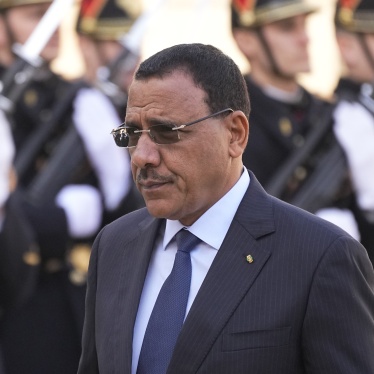Berlin, Geneva, Johannesburg, London, Mexico City, New York, Ottawa, and Paris, 16 February 2016.
Professor Sean Murphy
Special Rapporteur of the International Law Commission on crimes against humanity
2000 H Street, NW
Washington, District of Columbia 20052
United States of America
Dear Professor Murphy,
We write to you as civil society organizations committed to the fundamental principles of justice, truth and reparation for victims of the most serious crimes under international law. We have been following with great interest your work on the draft articles for a Convention on crimes against humanity. We believe that a strong text on crimes against humanity which fully comports with existing treaty and customary international law norms would be an extremely valuable contribution to this field. In addition, it could assist States in their efforts to prevent and prohibit all acts amounting to crimes against humanity and, where such acts have taken place, to effectively investigate and prosecute all those suspected of criminal responsibility for such crimes and afford access to effective remedies and reparation to the victims. In contrast, a text which does not fully reflect those norms could have a damaging effect and may result in even greater impunity for acts amounting to crimes against humanity.
We understand that you will soon be presenting a second set of draft articles – mainly on the scope of States’ jurisdiction for crimes against humanity - for the consideration of the International Law Commission (ILC). With great respect, we wish to underscore the importance of setting out provisions which, among others: a) oblige states parties to exercise their competence when a person suspected of responsibility for crimes against humanity is found in any territory subject to their jurisdiction, unless they extradite the person to another State or surrender him or her to an international criminal tribunal; and b) permit States to initiate investigations based on universal jurisdiction over crimes against humanity suspects, regardless of where such persons are physically located.
Crimes against humanity are precisely those offenses which were under consideration when the concept of universal jurisdiction was first articulated - crimes that are so grave that they harm the entire international community. No safe havens whatsoever should be available for those who perpetrate crimes against humanity. This is consistent with the principle established in Nuremberg and would also be the most appropriate framing of jurisdiction, given the position under customary international law and the relationship between crimes against humanity and grave breaches of the Geneva Conventions. In addition, it would also be in accordance with the approach taken in the 1996 Draft Code of Crimes against the Peace and Security of Mankind, where the ILC provided for the obligation to extradite or prosecute (aut dedere aut judicare) and also universal jurisdiction, explaining that: 'The phrase "irrespective of where or by whom those crimes were committed" [contained in article 8] is used in the first provision of the article to avoid any doubt as to the existence of universal jurisdiction for those crimes'.
We believe that provisions on aut dedere aut judicare and universal jurisdiction are essential aspects of the proposed Convention and it is vital that the Convention does not backtrack on such important international law principles.
We would welcome the opportunity to discuss this and other related matters further with you and also to engage in a timely way with the ILC on the drafting process of the new Convention.
Yours sincerely,
Signatory organisations
- Amnesty International (Tawanda Mutasah, Senior Director for International Law and Policy)
- Canadian Centre for International Justice (CCIJ) (Matt Eisenbrandt, Legal Director)
- Comisión Mexicana de Defensa y Promoción de los Derechos Humanos (CMDPDH) (José Antonio Guevara Bermúdez, Executive Director)
- European Center for Constitutional and Human Rights (ECCHR) (Wolfgang Kaleck, Secretary General)
- Fédération internationale des ligues des droits de l’Homme (FIDH) (Antoine Bernard, Chief Executive Officer)
- Human Rights Watch (Richard Dicker, Director, International Justice Program)
- International Center for Transitional Justice (ICTJ) (Paul Seils, Vice President)
- International Commission of Jurists (ICJ) (Ian Seiderman, Legal and Policy Director)
- Parliamentarians for Global Action (PGA) (David Donat Cattin, Secretary-General)
- Redress (Carla Ferstman, Director)
- Southern Africa Litigation Centre (SALC) (Kaajal Ramjathan-Keogh, Executive Director)
- Track Impunity Always (TRIAL) (Philip Grant, Director)







